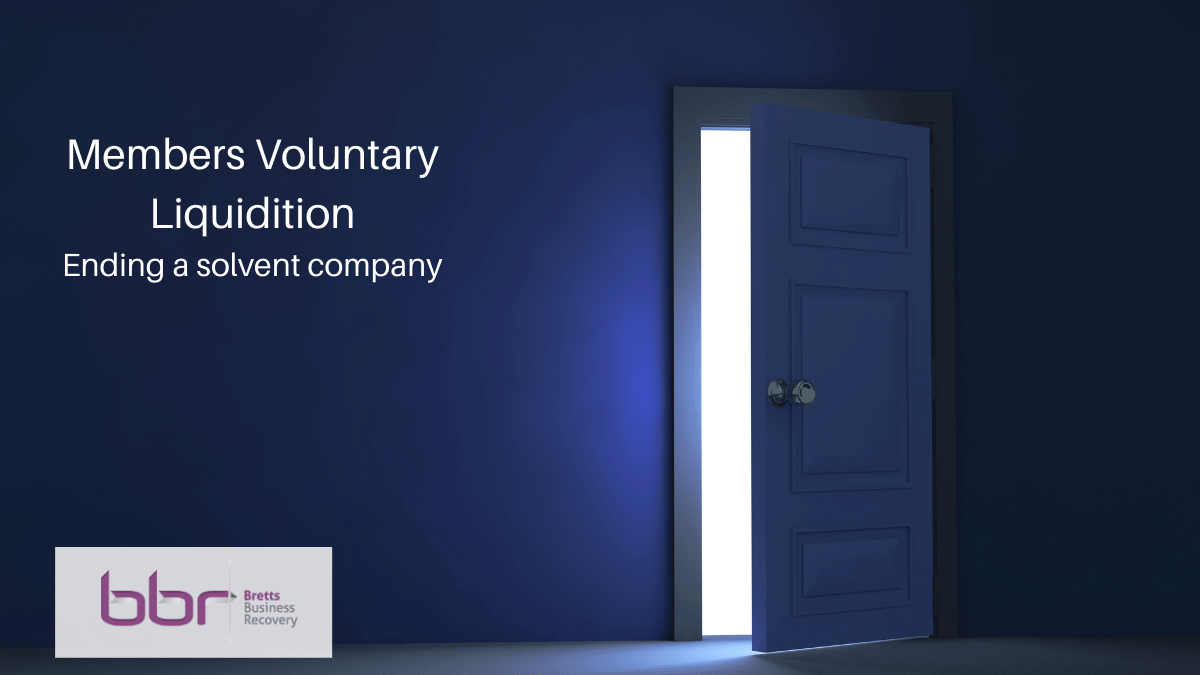Members’ Voluntary Liquidations (MVLs): Understanding Their Purpose and Suitability

What is an MVL?
A Members’ Voluntary Liquidation (MVL) is a formal process used in the United Kingdom to wind up a solvent company. Unlike a Compulsory Liquidation or a Creditors’ Voluntary Liquidation (CVL), where the company is insolvent and unable to pay its debts, an MVL is initiated when a company’s directors and shareholders believe that the business has achieved its objectives, and its purpose is complete. In such cases, the company’s assets are distributed among its shareholders, and the business is brought to a formal and orderly closure.
When are MVLs Used?
MVLs are typically used under the following circumstances:
- Retirement:
Many entrepreneurs and business owners decide to retire . An MVL allows for a tax-efficient exit strategy, enabling the distribution of assets and accumulated profits to shareholders, minimizing tax liabilities.
- Business Restructuring:
In some cases, companies undergo restructuring or group reorganization. As part of the process, certain subsidiaries or entities may no longer serve a practical purpose. An MVL is used to dissolve these solvent entities and distribute their assets within the group.
- End of Business Venture:
Entrepreneurs and investors occasionally start a company for a specific project or venture. Once the project is completed, the company’s objectives have been met, and there is no further need for its existence. In such cases, an MVL is suitable for a smooth and organized closure.
- Estate Planning and Probate:
Individuals who hold shares in a private company as part of their estate planning may use an MVL to distribute the company’s assets among beneficiaries and efficiently transfer ownership after their passing.
- Voluntary Dissolution:
In cases where shareholders unanimously agree to dissolve the company and there are no outstanding debts or liabilities, an MVL is an appropriate legal process to close the business particularly if the directors want peace of mind that everything has been properly dealt with.
Suitability of MVLs:
MVLs are suitable for solvent companies, meaning that their assets exceed their liabilities, and they are capable of paying their debts in full within a 12-month period. Below are some key points highlighting the suitability of MVLs:
- Tax Efficiency:
One of the primary advantages of an MVL is its tax efficiency. Capital distributions to shareholders through an MVL are treated as capital gains rather than income, resulting in potentially lower tax liabilities for shareholders. In some circumstances the shareholders may also be entitled to Business Asset Disposal Relief (previously Entrepreneurs Relief) which would reduce the tax rate to 10%.
- Smooth Closure Process:
MVLs provide a formal and controlled process for winding up a company. This ensures an organized distribution of assets to shareholders, avoiding potential disputes and providing legal protection to directors.
- Declaration of Solvency
Before proceeding with an MVL, the company’s directors must make a statutory declaration of solvency. This declaration states that the company can pay its debts in full, including interest, within the specified time frame. Additionally, shareholders must pass a special resolution to approve the MVL.
- Retaining Value:
Using an MVL instead of a CVL or other liquidation processes means that the company’s assets are more likely to be preserved and distributed among shareholders rather than being used to settle outstanding debts.
- Professional Guidance:
Given the complexity of the process, it is essential to seek professional advice from a licensed insolvency practitioner. They can guide company directors and shareholders through the process, ensuring compliance with legal requirements.
Members’ Voluntary Liquidations (MVLs) in the UK are a practical and tax-efficient means of winding up a solvent company. They are commonly used when a company has achieved its objectives or is no longer needed. Through an MVL, directors and shareholders can ensure an orderly and organised distribution of assets while benefiting from favourable tax treatment. Nevertheless, it is crucial to seek professional advice before commencing the process to ensure a smooth and legally compliant closure of the business.